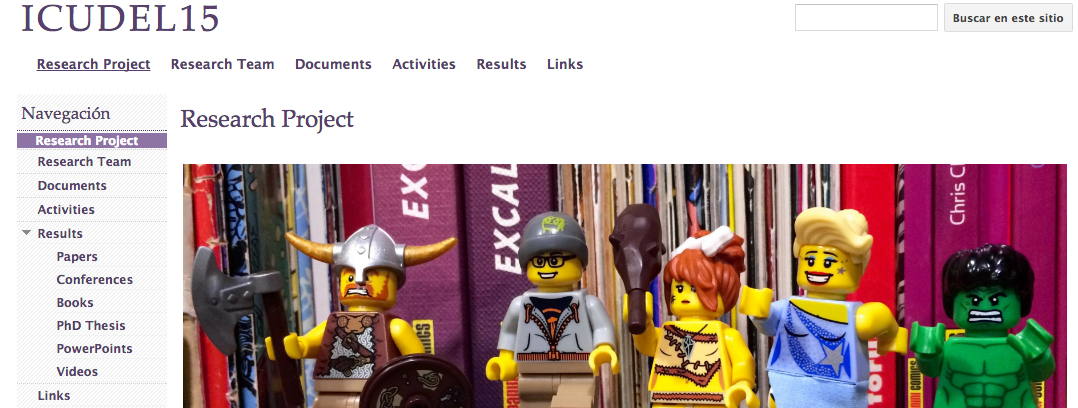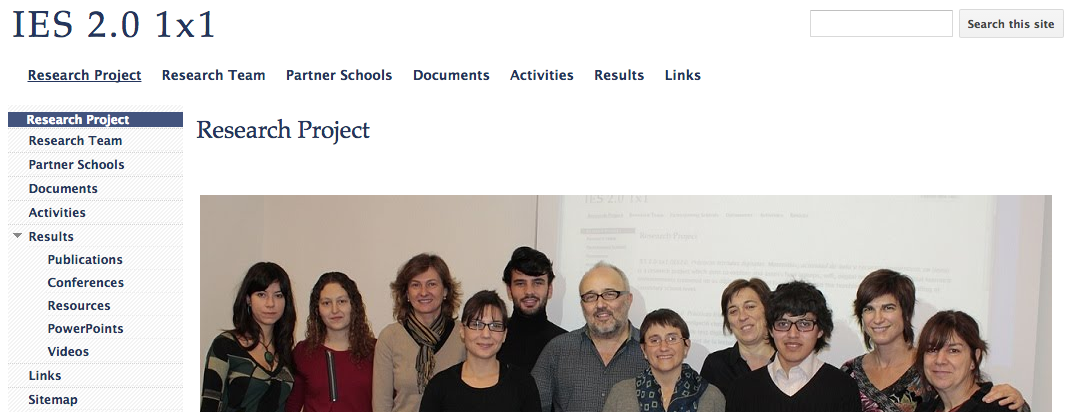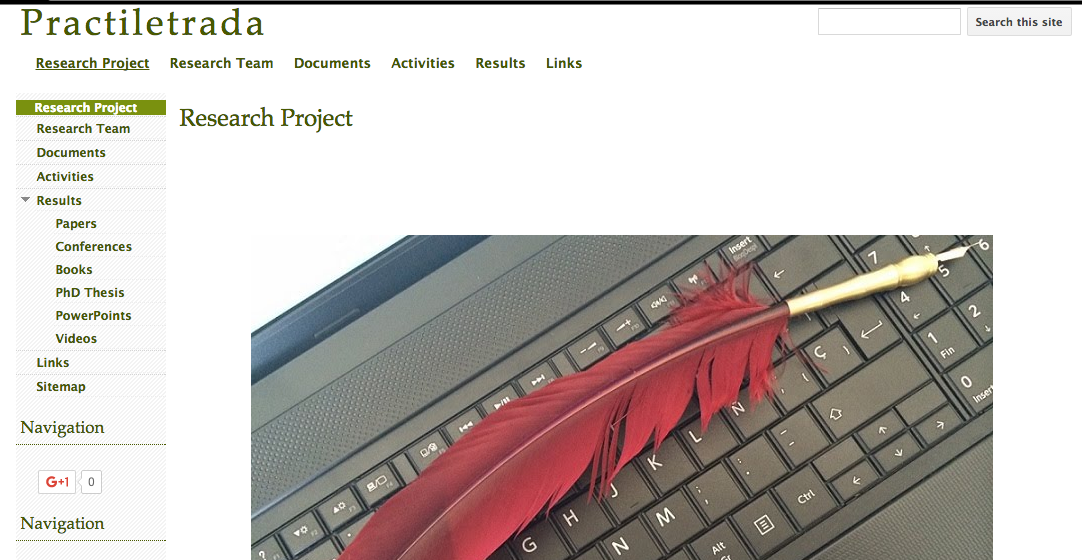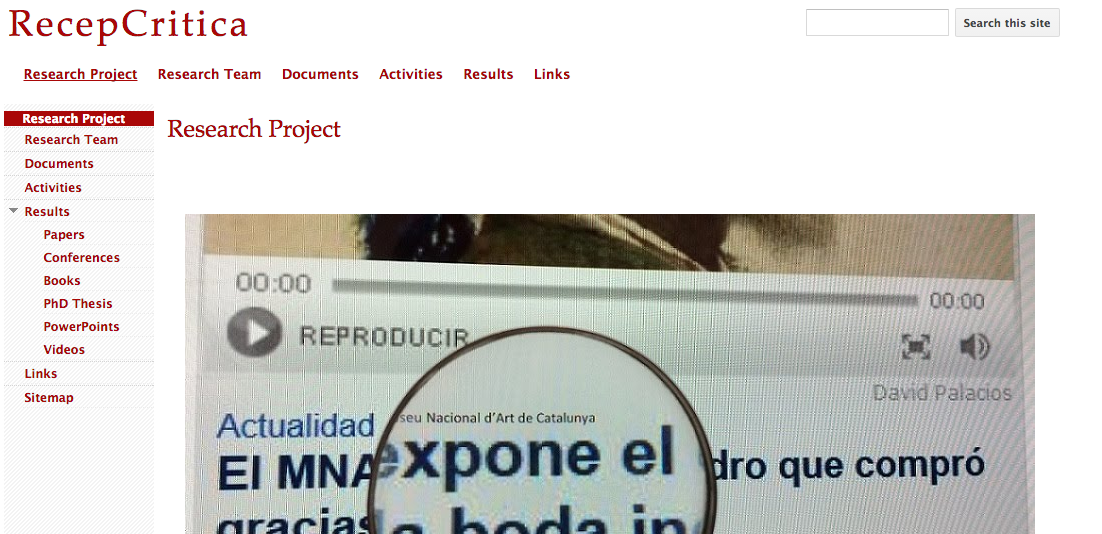Projects
Literacy
1. ForVid. Video as a language learning tool in and outside the classroom. MINECO: "Programa Estatal de Investigación, Desarrollo e Innovación Orientada a los Retos de la Sociedad" (RT2018-100790-B-100), 2019 (Modalitat 1; 2019-2021): Universitat Pompeu Fabra. Site: ForVid18.
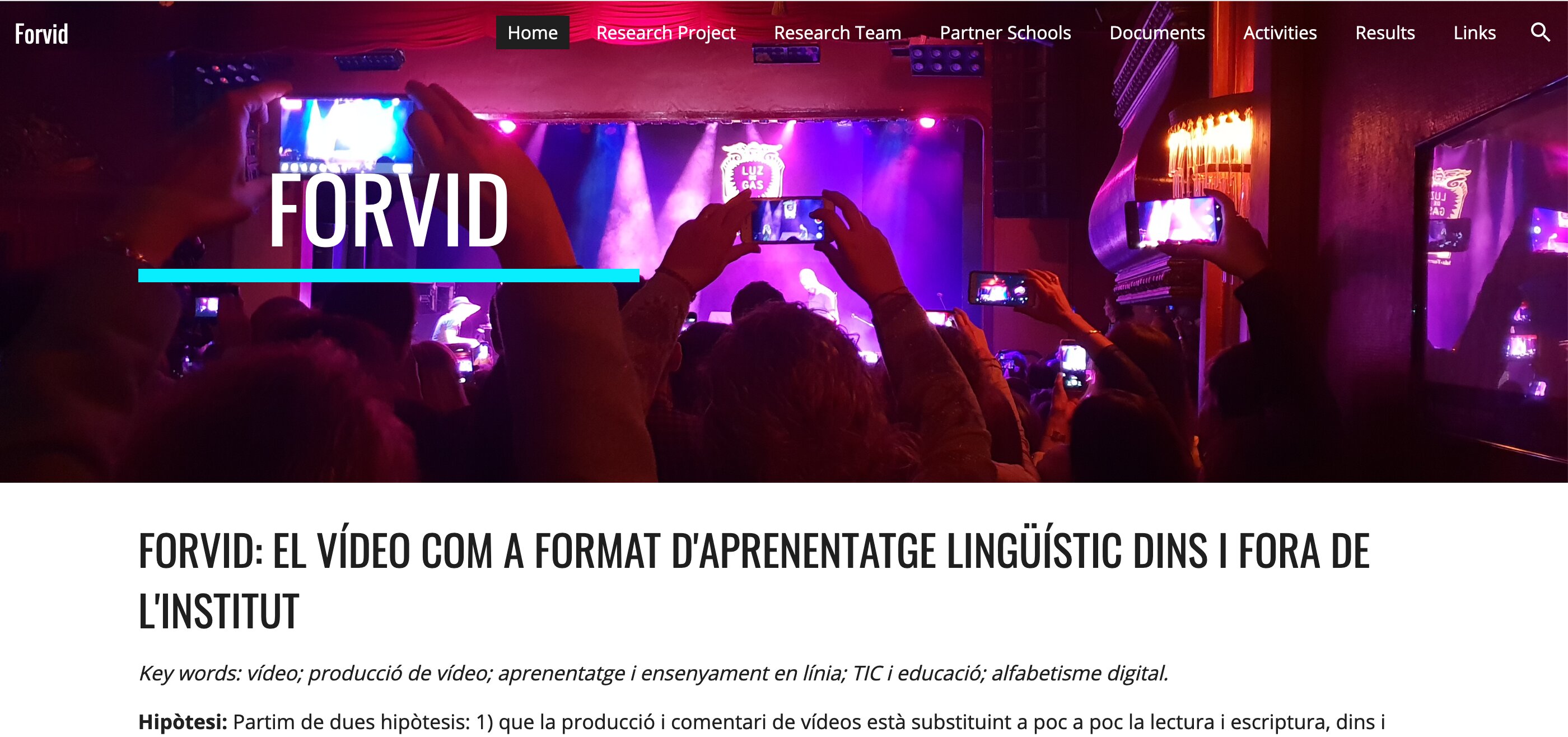
2. Defandom. El fandom en la juventud española. Funds from the Tercera convocatoria de ayudas a la investigación (2016) from Centro Reina Sofía sobre Adolescencia y Juventud. Site: Defandom.
3. ICUDEL15. Identidades y Culturas Digitales en la Educación Lingüística. This project is supported by the MINECO (Spanish Ministry of Economy and Competitiveness), under the "Programa Estatal de Investigación, Desarrollo e Innovación Orientada a los Retos de la Sociedad", 2014 (modality 1). It is a coordinated project between the Universitat Pompeu Fabra (with the code EDU2014-57677-C2-1-R; 2015-2017) and the Universitat de Lleida (with the code EDU2014-57677-C2-2-R), for the period 2015-2017. Also, several members of this research take part in two consolidated research teams. At the Universitat Pompeu Fabra, the GR@EL (Research Group in Language Teaching and Learning), has received grants from the AGAUR, the Catalan Agency for the Administration of Universities and Research Grants (2009 SGR 803, resolution 03/07/2009; and 2014 SGR 1042, resolution 16/07/2014). Site: ICUDEL15.
4. IES 2.0: Digital literacy practices. Materials, classroom activity and online language resources. (EDU2011-28381), from 1-1-2012 to 31-12-2014, UPF, with D. Cassany as a coordinator. Programas Nacionales del Plan Nacional de Investigación Científica, Desarrollo e Innovación Tecnológica 2011. Project. Site: ies20_1x1.
5. Description of some recent literacy practices. Linguistic analysis and didactic proposal, HUM2007-62118/FILO, from 12-12-2007 to 12-12-2010, UPF, with D. Cassany as a coordinator. Dirección General de Investigación, MEC. Participants: 11. Site:practiletrada.
6. Critical Literacy Competence in University and High School Students: Analysis and Didactic Proposal, HUM2004-03772/FILO, from 13-12-2004 to 12-12-2007, in the UPF, with D. Cassany as a coordinator. Dirección General de Investigación, MEC. Participants: 11. Site: recepcritica.
European Language Portfolio
(PEL) Portfolio Europeo de las Lenguas español para secundaria: diseño, experimentación, validación y difusión, Council of Europa & Subdirección General de Programas Europeos (MECD): MECD, Universitat Pompeu Fabra, Universidad de Valladolid, EOI Madrid. 2001-2004. Participants 3 researchers and 9 secundary teachers, with D. Cassany as a coordinator.
Public Understanding of Science
1. Discourse Analysis of Science Popularization in Health Sciences: Conceptual Elaboration and Discursive Strategies, BFF2000-0932; with H. Calsamiglia as a coordinator, (2001-2003), UPF. Plan Nacional de Investigación Científica, MEC. Participants: 7.
Science popularisation prefigures a communicative scene where specialised and common shared knowledge merge. In order to make it possible for a large public to access the latest developments in research, both popularisers and audiences perform complex cognitive, discursive and grammatical operations. Such operations are then verbally projected in texts under distinct rhetorical structures, enunciative features and specific syntactical and lexical styles. A systematic acknowledgement of those linguistic features in any text should increase the discursive quality and performance of their authors, particularly nowadays that the public communication of science is becoming an increasingly needed social demand. This project intends to build up a theoretical framework for the analysis of science popularisation describing its characteristic linguistic features on the basis of empirical case studies in the fields of health and medical sciences. The main goal of this project is therefore to formulate a theoretical model on the 'recontextualisation' of scientific knowledge based on both pragmatic and discursive grounds which might account for all the cognitive and linguistic phenomena observed. As for the main specific objectives of the project, they involve analysing the following:
a) the reelaboration of conceptual networks;
b) the textual fabric conceptual networks are built upon and the prototypical discourse procedures generated and,
c) the argumentative orientation underlying both the statements and the social representations of science.
The final goal of the project is thus to provide tools for the professional training of communicators, both scientific and mediators, likely to adjust to the current Information and Knowledge Society.
2. Análisis discursivo de la divulgación científica: aspectos pragmáticos, textuales y retóricos (DGES, núm. PB96-0292), with Helena Calsamiglia as a coordinator, 1997-2000), in the UPF, Plan Nacional de Investigación Científica, MEC (Dep. de Traducció i Filologia i Comunicació Audiovisual. Participants: 7.
Abstract in Spanish: La ciencia se convierte en cultura en el momento en que la sociedad tiene acceso directo al discurso científico a través del lenguaje de la divulgación del saber. En este sentido, se puede afirmar que la divulgación científica no solo informa, sino que también forma a la sociedad. Ciencia y societat interactúan por excelencia en el espacio discursivo creado por el lenguaje divulgativo. Este proyecto se propone analizar desde una perspectiva lingüística interdisciplinaria (discursiva, textual y pragmática) el fenómeno de la divulgación del saber en los medios de comunicación (publicaciones periódicas, conferencias, debates, televisión, vídeo, cine, etc). Nuestra propuesta tiene como objetivo iniciar el trabajo conjunto de investigación aplicada entre estudiosos del discurso, en la primera fase de un trabajo de ámbito más amplio sobre el discurso de la divulgación de la ciencia. El propósito de esta primera fase contempla tres aspectos:
a) Precisar y afinar un primer modelo de descripción de la situación y del texto de la divulgación oral y escrita, incorporando los métodos que se consideren apropiados para el análisis de este tipo de discurso.
b) Establecer la panorámica del discurso de divulgación en nuestro país y recoger muestras representativas de textos de difusión oral, escrita y audiovisual. Comparar estas muestras con referencias de otros países europeos, como Gran Bretaña y Francia.
c) Iniciar la aplicación del modelo en estudios monográficos de textos en los que se estudien principalmente la situación pragmática, el registro y los recursos expresivos usados.
Los resultados de esta primera fase deberían servir para establecer las hipótesis de investigación del discurso de la divulgación, para diferentes niveles de transmisión del contenido informativo, los propósitos de la difusión, los canales usados, los géneros y el lenguaje propio de la comunicación persuasiva e eficiente. En las fases siguientes se contemplaría la construcción de un corpus de textos divulgativos.
Other
1. Configuración morfológica y estructura argumental: léxico y diccionario (DIGICYT, núm. PB93-0546-C04-02), 21-9-94 / 30-9-97, coordinator: M. Teresa Cabré, Universitat de Girona, Pompeu Fabra, Autónoma de Madrid, País Vasco. Plan Nacional de Investigación, MEC. Participants: 8.
2. Informatización y estudio del Corpus 92 (lengua escrita por aspirantes a estudios universitarios) (DIGICYT, núm. PB93-0392); 21-7-94 / 21-7-97, coordinator: M. Paz Battaner Universitat UPF. Plan Nacional de Investigación, MEC. Participants: 7.
3. Análisis de datos de textos plurilingües con una finalidad constructiva textual, discursiva o contrastiva lingüística, P197.010, coordinator: M. Tricás, 4-2-98 / 4-2-99, UPF.

